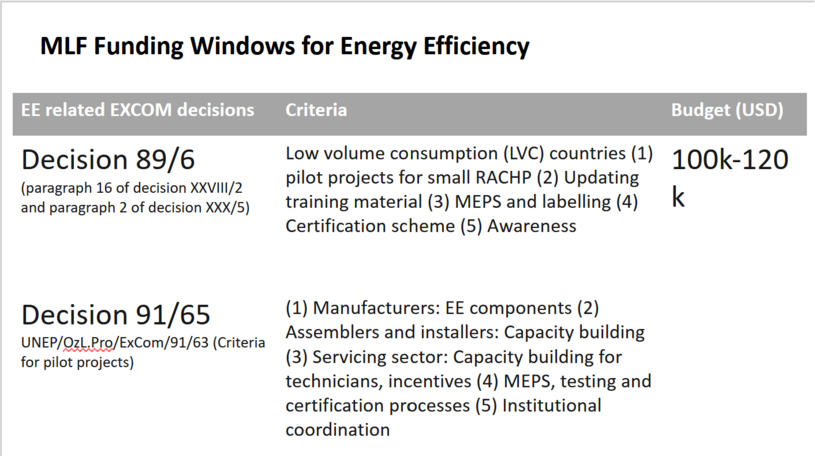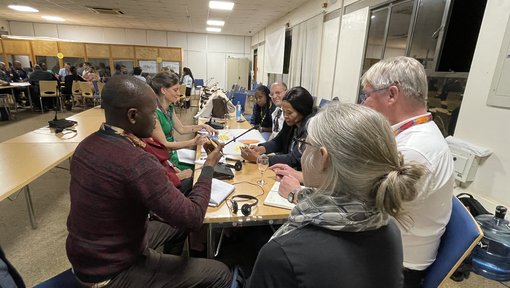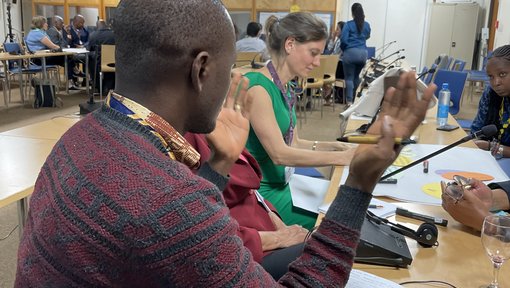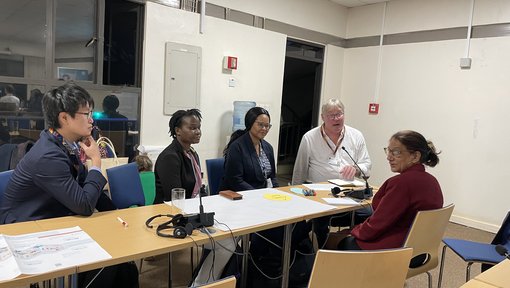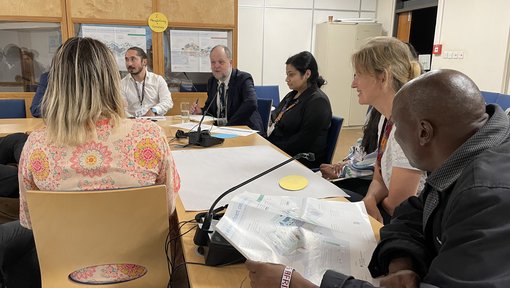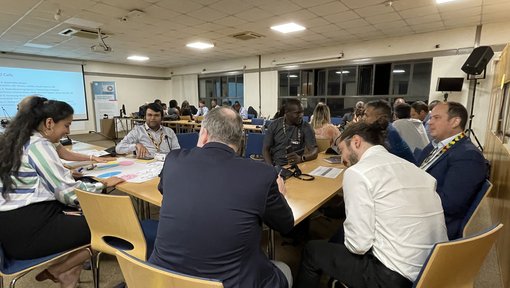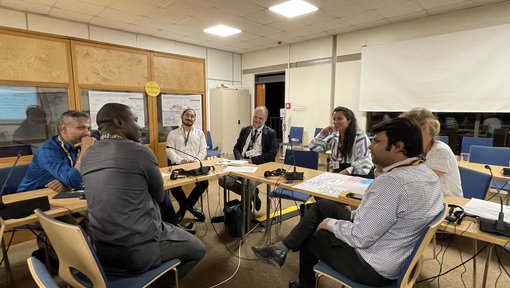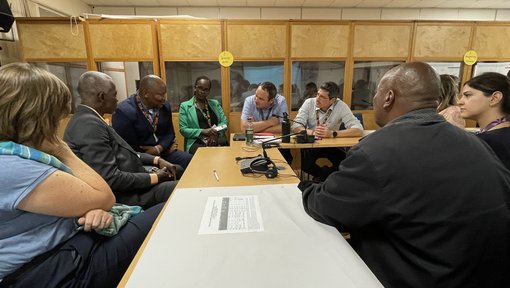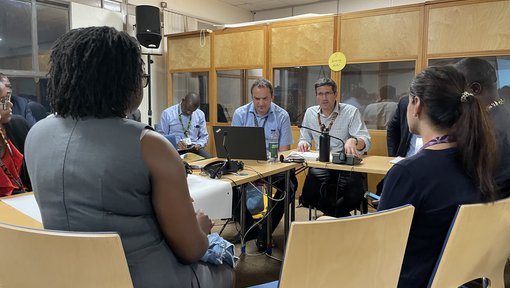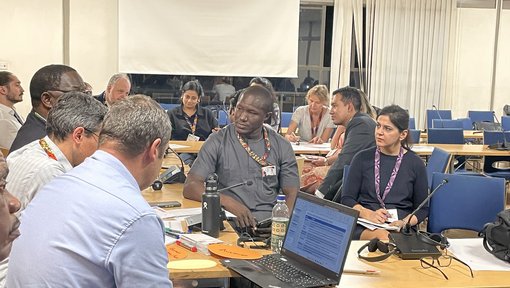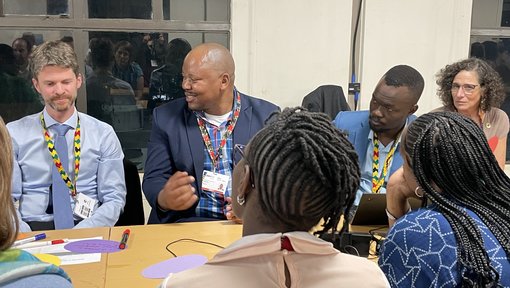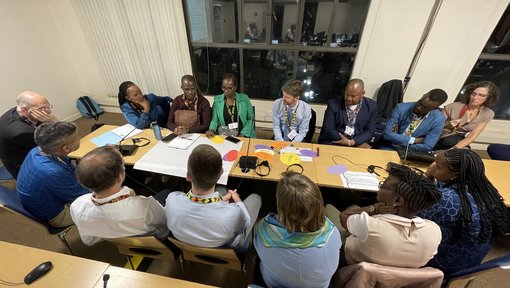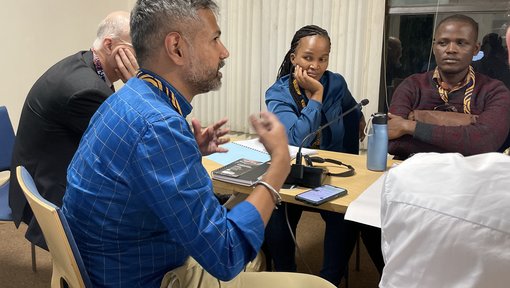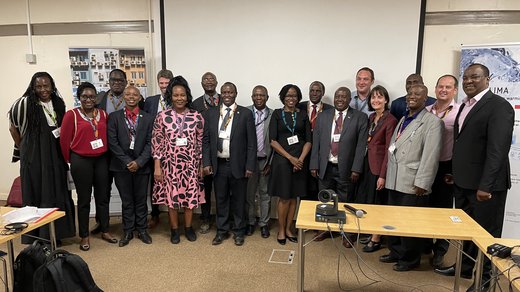Energy Efficiency is an important matter to reduce greenhouse gas emissions from the growing refrigeration and air conditioning (RAC) Sector.
The Multilateral Fund (MLF) to the Montreal Protocol is offering a new funding window on financing energy efficiency in the RAC Sector (Decision 89/6 and 91/65). How can this funding window be used? Around 50 participants had lively exchanges on that question at our interactive World Café on Effective Energy Efficiency Measures.
In contrast to other side events, participants of the Energy Efficiency World Café could not lean back and listen to presentations. Instead, they were asked to contribute to two rounds of table discussions. The participants worked simultaneously on four topics: assembly sector, conversion projects, servicing sector and policy measures.
Assembly Sector
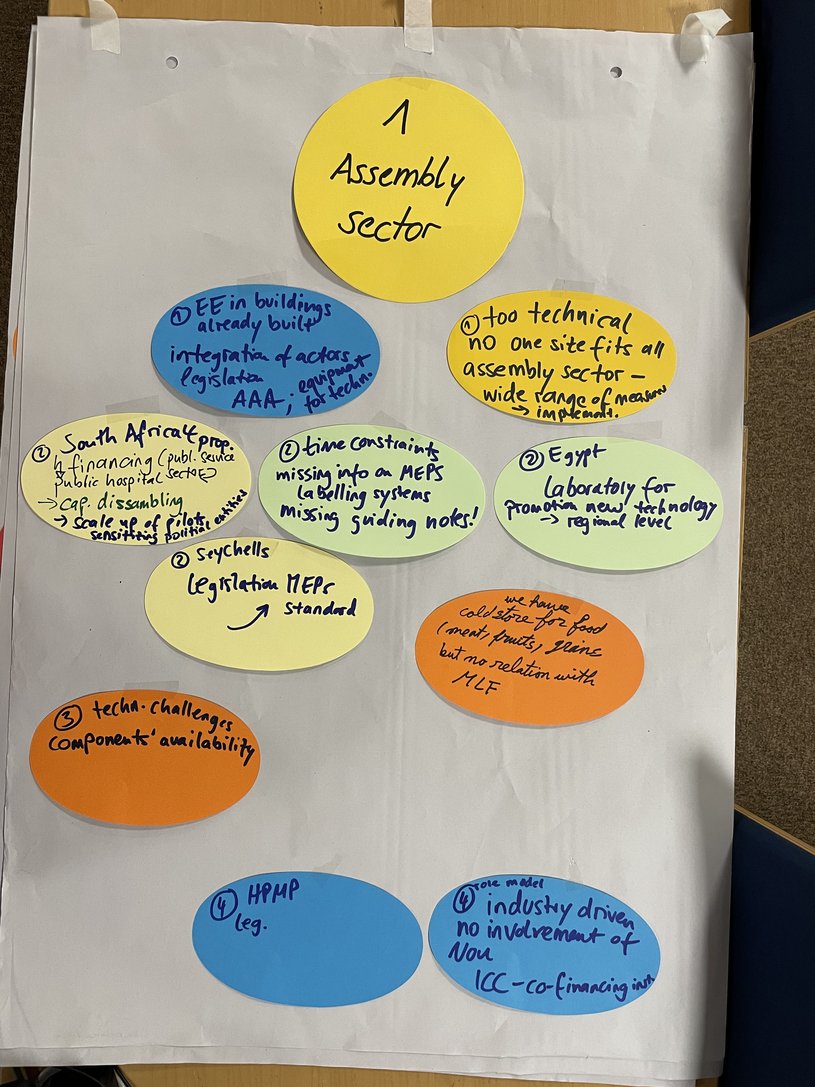
Within the discussions at the thematic table “Assembly Sector” it became clear that the availability of components in the different countries is a big challenge as such. Associated with this, it was highlighted that there is a lack of capacity building in the sector so the participants would appreciate further assistance on the topic. Support would also be needed in developing guiding notes on energy efficiency.
Photo gallery
Conversion Projects
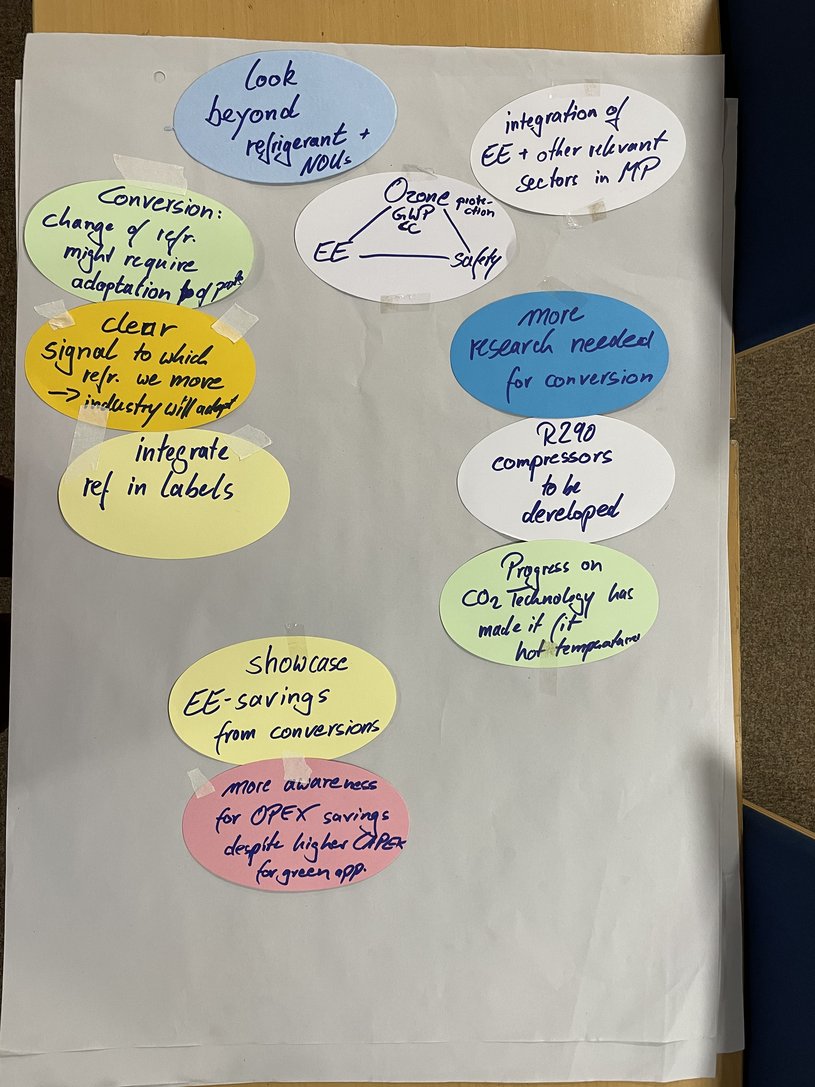
The group on "conversion projects" concluded early in the discussion that an integrative view is necessary on the topics ozone depletion, greenhouse gas potential and energy efficiency, combined with considerations of safety of a refrigerant. There was confidence that the industry can develop solutions if it gets clear directions to which refrigerants a country wants to move. CO2 served as an example: initially, it was only considered as a technology for rather cold ambient temperatures – the Alps were seen as the CO2 equator. However, it was adapted by parallel compressors to also function well in hotter temperatures. Further research might be necessary for some refrigerants. As a current example, Bernhard Siegele, programme manager of GIZ Proklima, mentioned the development of an energy efficient compressor for R290 to be financed by the Multilateral Fund in India.
Photo gallery
Servicing Sector
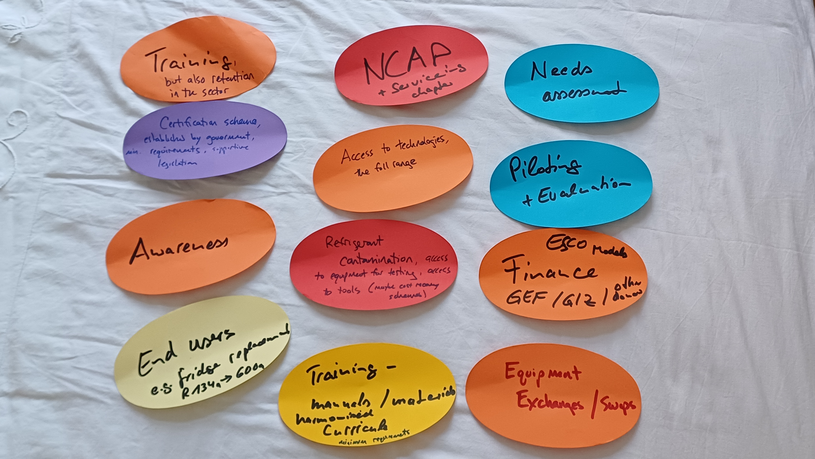
The participants of the two discussion rounds related to the servicing sector started by mentioning general needs and challenges. Those comprise the availability of tools, trainings, certification, integration of the informal sector and others. The participants then discussed more concretely potential project activities under the two MLF energy efficiency funding windows. Examples are the development of National Cooling Action Plans (NCAP), pilot projects such as fridge replacement, and awareness raising of technicians and end users.
Photo Gallery
Policy Measures
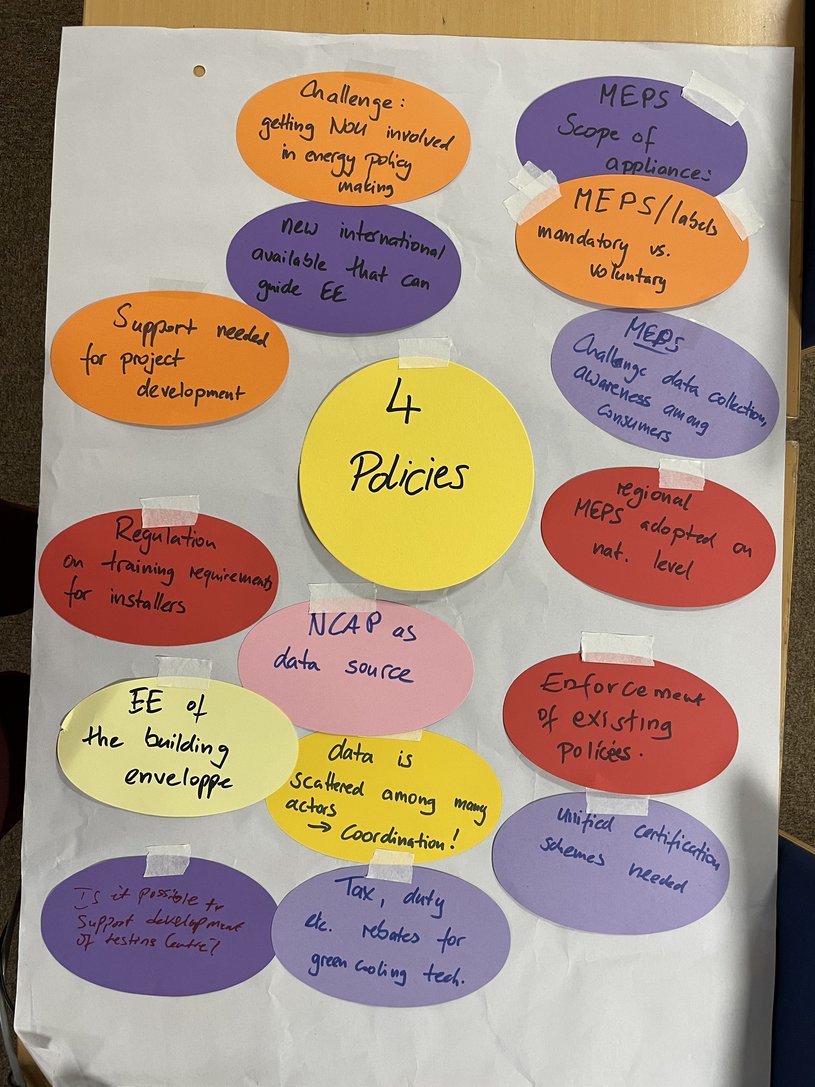
The two group discussions on policy measures focussed mostly on Minimum Energy Performance Standards (MEPS). These can be defined with different scopes:
covering only specific equipment or
general MEPS over different types of electrical appliances.
Regional MEPS already exist in some places around the world but must be nationalized before being implemented. It was discussed that MEPS are often only voluntary, and that enforcement is difficult where mandatory MEPS exist. National Ozone Units (NOUs) also face the challenge that different stakeholders need to be involved. First of all, they must convince their energy colleagues of the need for MEPS in the refrigeration and air conditioning (RAC) sector. The same holds true for data accessibility. While necessary data for MEPS development often exist in the countries, these are scattered across too many stakeholders. NOU Grenada reported of the successful implementation of different regulatory and policy measures in the RAC sector, i.e. MEPS, tax and duty exemptions for RAC equipment with natural refrigerants.

